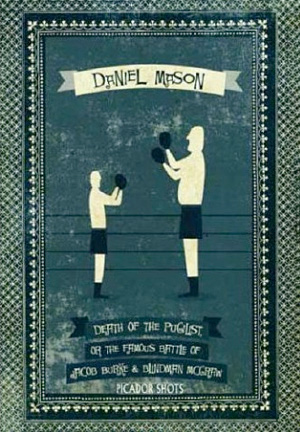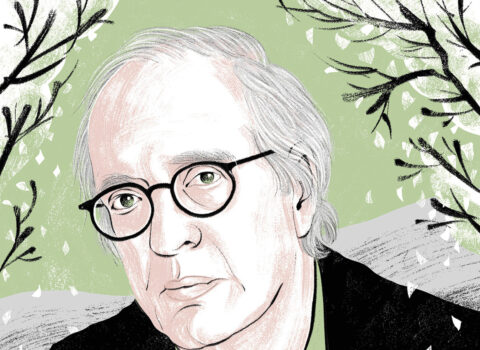
Harper’s readers know that Daniel Philippe Mason (no relation) has been writing excellent, strange, and beautiful stories for this magazine over the past few years. Three have appeared so far, and from them a sense of larger project in the making is growing clear: a redemption by example of the category (the imaginative ghetto) called Historical Fiction.
I suppose I have to unpack my categorical bias a little. Aphoristically, I’d say that fiction about the historical dead rarely seems alive. Specific successes in the form (I, Claudius) only serve to inform the abject failedness of most serious attempts therein (A Castle in the Forest). The historical, I find, tends to corset the imagination of creative writers seeking the freedom of mind upon which the enterprise depends. Facts, foreclosed as they are, intrude in a way that stifle fiction. Or so would go my bias, the thesis for any essay on historical fictions I would be tempted to write and argue towards.
Which leads us back to Daniel Mason. Two of the fictions he’s written for the magazine include real history. Arthur Bispo do Rosario is the narrator of Mason’s “A Registry of My Passage on the Earth,” and Alfred Russel Wallace the protagonist of “The ecstasy of Alfred Russel Wallace”. Each does its imaginative work within the confines and borders of the lived histories of these interesting human creatures. They left adequate signs of their earthy passage for us to puzzle over, and yet Mason’s involvements with them feel necessary, not peripheral. These reckonings with the addled mind of an artist and the more lucid but no less haunted consciousness of a naturalist, explorer, geographer, anthropologist, and biologist get at something that the departments of fact and psychology miss. They make a coherence out of the incoherent workings of another being’s solitude.
I suspect that Mason is making a book of such looks at lives, looks that live those lives, rather than attempting to explain them. A third of these deep stares into being, “The Death of the Pugilist,” is similarly historical, but a few hours of Internet research leave me (briefly) convinced that Mason’s history here of a great and famous fight is a pure invention posing as history.
I like this story very much, and have found that it comes most alive when read aloud. If you’re snowed in somewhere or otherwise able to take a quiet hour in the company of a friend, I suggest that you read aloud this very exquisite account of a conflict. The rising energy, not to say the sublime expression of that energy, in this story, is more than notable; it signals that this bestselling author of The Piano Tuner is on his way to another, richer, stranger kind of beauty. (There is also a snazzy little offprint of it, from Picador UK.)
The story unfolds in a catechistic mode, and transcends all modes, by the end. It begins this way:
Who was Burke? His beginnings.
Born a caulbearer in the Bristol slums, in the quayside heap known only as “the Rat,” Jacob Burke, who would battle the great McGraw on that fateful day in 1824, was a winter child of the stevedore Isaac Burke and the seamstress Anne Murphy. He of Bristol, son of James, son of Tom, son of Zebedee, lifters all. She of Dublin and the cursed Gemini of Poverty and Fertility: Jacob was the twelfth of eighteen children, the third of the eight who survived.
It was a typical quayside childhood, of odd jobs and shoe-shining and sporadic bouts of schooling: quinsy, croup, and the irresistible temptation of diving from the piers. In the summer he ran with the flocks of children terrorizing the streets with their play.
He grew up quickly. Thick-necked, thick-shouldered, steel-fisted, tight-lipped, heavy-on-the-brow, the boy knew neither a letter nor the taste sweet until his tenth year, when in the course of a single moon, he learned to lip out the rune on the shingle at Mulloy’s Arms and stole an apple from a costermonger on the road to Bath. Two brothers, thinking they were bona fide Dick Turpins, had treaded into a life of brigandage, but by the grace of his mother’s daily prayers and father’s belt, Jacob Burke turned from the taste of apples and back to the straight and narrow of his bloodline, joining Burke père on the docks.
On the docks he remained, lifting barrels of fish and slabs of iron cold from the sea air, until his back broadened and his forearms broke his cuffs.
It continues here. I suggest it as your Weekend Read. But… if you’re in a watching mood, you can see Mason read it earlier this year:
Thanks to Daniel Mason, Picador, and Knopf for permission to reprint.





